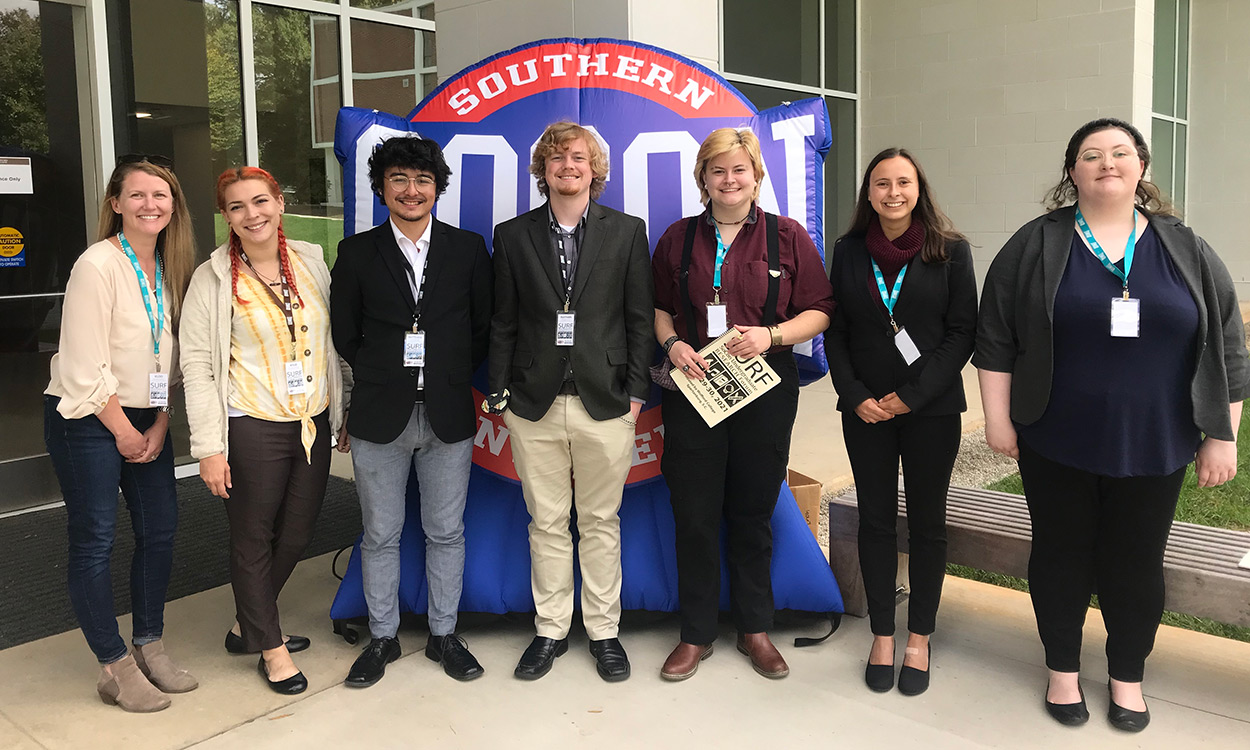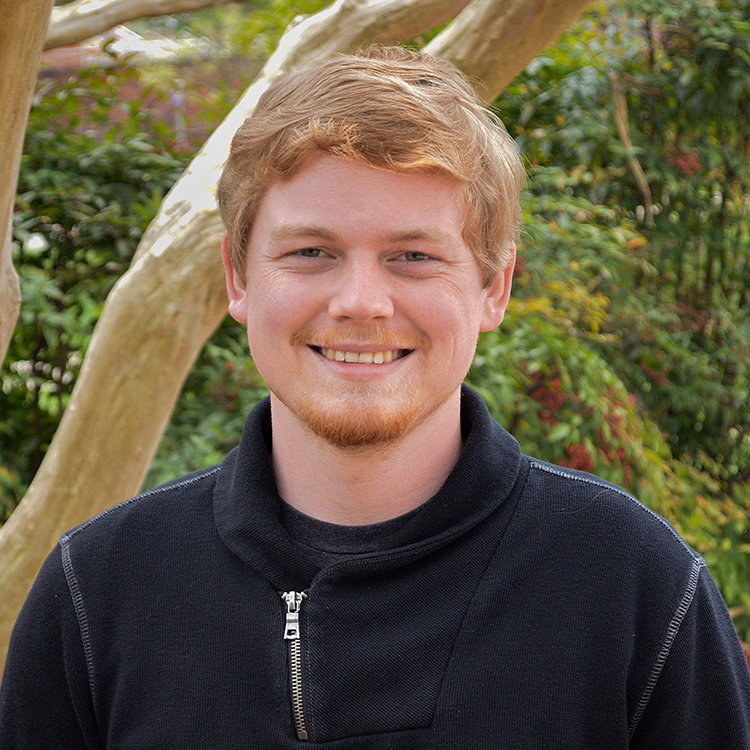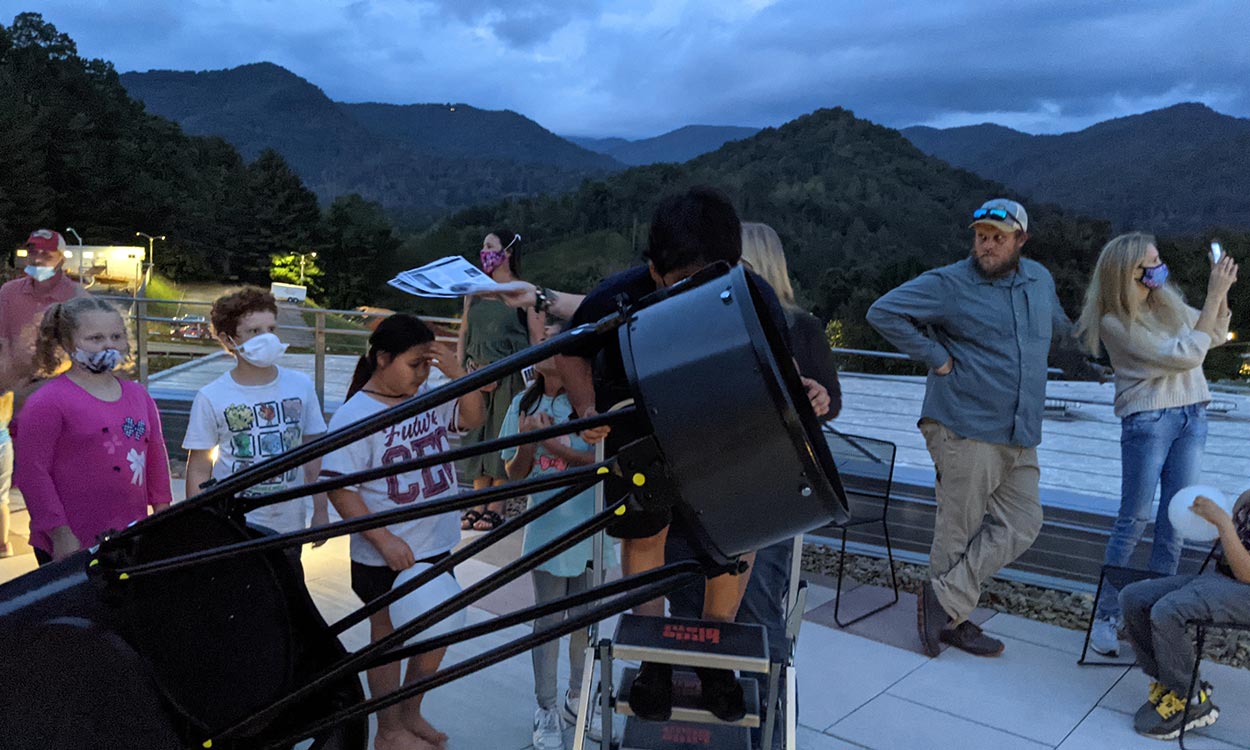Undergrads present research at conference forum
By Tom Lotshaw
Western Carolina University students Melissa Rogers, Nathan Travis, Emily Ervin, Matthew Tuten, Kylie Conard and Faye Gant presented research projects at the Southern Conference Undergraduate Research Forum.
The annual forum provides undergrads at conference schools a venue to present research projects and creative activities. It was held Oct. 30 at Wofford College in Spartanburg, South Carolina.
The WCU students’ projects ranged from examinations of colonial power structures and their impacts on memory to barriers to empathy for animals in traditional ethics, Christian narratives and Japanese ceramics.
Rogers said she enjoyed presenting her project, “May the Homeostasis Be With You: Physiology of the Animal Kingdom in George Lucas’ Star Wars.”

Melissa Rogers
Rogers is a senior from High Point majoring in English and pursuing minors in biology and medical science. She’s also a Star Wars fan. She used an animal physiology course last spring to complete the honors project. It examines some of the biological characterizations commonly found online for the movie series’ fictional aliens.
“It was super fun. I’m really glad I got to do it,” Rogers said.
The project started after Rogers showed her instructor Joe Bill Mathews a Jabba the Hutt figurine that she 3-D printed through WCU’s Technology Commons. Mathews, also a Star Wars fan, showed her the first slide of a presentation he once wanted to make about the physiology of the movie’s aliens.
“He never made that presentation, but that was what inspired me,” Rogers said.
Rogers examined two Star Wars characters for the project: Jabba the Hutt, commonly characterized online as a slug-like creature, and banthas, a domesticated animal often described as yak-like.
Using her knowledge of anatomy and physiology, Rogers found Jabba the Hutt — with his skeleton, circulatory system and other anatomical features — has far more in common with amphibians than any type of slug. Banthas, she found, appear to have more in common with camels than yaks.
Nathan Travis, of Indian Trail, is a senior pursuing a double major in philosophy and mathematics, an applicant for a Fulbright scholarship and a Methodist.

Nathan Travis
Travis started his project, “A Conversation Between James and Wesley: The Pragmatic Methodist’s Dyad,” in January 2020 because of an internal struggle over the lack of LGBTQ inclusion in the United Methodist Church. The year before, a narrow majority of church leaders and members voted to continue the church’s stance against allowing “practicing” LGBTQ people to become ordained pastors.
Aiming to establish the core of a Methodism more accepting of people in the LGBTQ community, Travis looked to philosopher William James and his philosophical tradition of pragmatism, as well as to the views of John Wesley, the founder of Methodism, and other Methodist scholars.
Wesley’s theology was based on a quadrilateral of scripture, church tradition, reason and Christian experience, with scripture the primary foundation. Travis argues the church should instead consider personal and communal experience as coequal, primary authorities to offer a more pluralistic path for Methodists.
“With many of my friends and family members being a part of the LGBT+ community, I felt the need for a more progressive, accepting and inclusive form of Methodism,” Travis said of his project, which he hopes to continue in graduate school.

